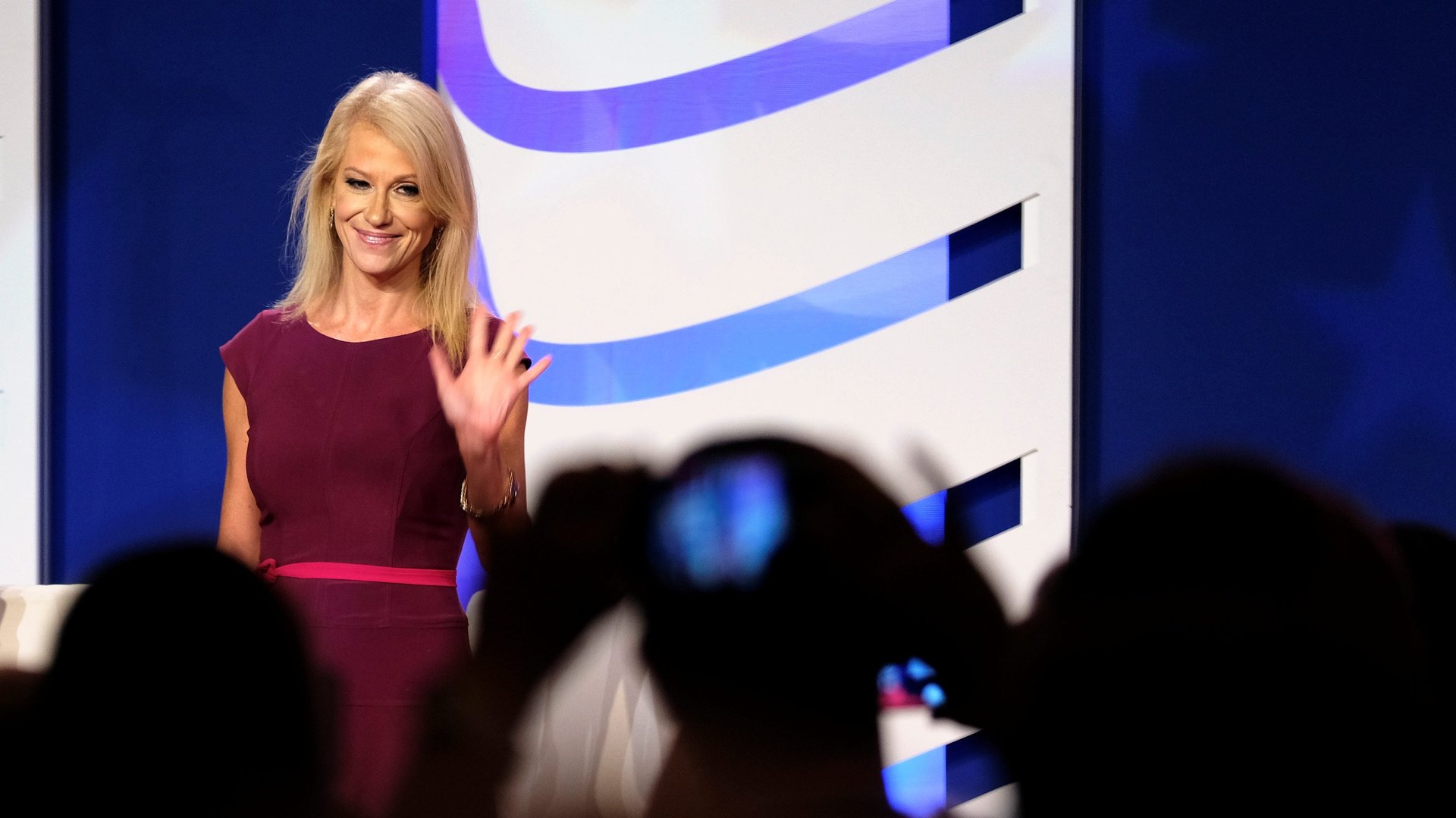Three things we know about how Kellyanne Conway will handle being opioid czar
Kellyanne Conway is a woman of many talents. Currently counselor to Donald Trump, she was previously his campaign manager, and also briefly stumped for Ted Cruz. Conway’s primary expertise is in polling—she founded and for many years ran her own polling company, called The Polling Company—but none of that holds a candle to her next assignment in the Trump administration: opioid czar.


Kellyanne Conway is a woman of many talents. Currently counselor to Donald Trump, she was previously his campaign manager, and also briefly stumped for Ted Cruz. Conway’s primary expertise is in polling—she founded and for many years ran her own polling company, called The Polling Company—but none of that holds a candle to her next assignment in the Trump administration: opioid czar.
In a news conference on Nov. 29, US attorney general Jeff Sessions said that Trump had asked Conway to “coordinate and lead” White House efforts to combat the opioid crisis, which Trump declared a national emergency last month. What qualifies Conway to tackle a complex multibillion-dollar problem that’s currently killing 142 Americans a day? That remains unclear.
But we do know a few things about Conway’s feelings on the issue. Here’s a brief (and I mean brief) history of her comments on it:
It’s a war, and we’re losing. At a presidential briefing in August, Conway (speaking alongside then secretary of health Tom Price, who has since resigned) called the opioid crisis “very complicated” and said that “currently we are on the losing side of this war.” “We are a nation that consumes legal and illegal drugs at a very high and alarming rate,” Conway said, adding that most of the work is currently being done “at the state and local levels.” Conway characterized the crisis a “nonpartisan issue in search of bipartisan support and bipartisan solutions.”
The best way to stop doing drugs is to never start at all. After Trump declared opioids a national emergency in October, Conway spoke to Fox News about his speech, saying Trump had “echoed the message that many health care providers and elected officials say, which is the best way to stop people dying from overdoses and drug abuse is by not starting in the first place.” Conway said the administration’s efforts would focus on prevention and education, treatment and recovery, and interdiction and enforcement.
It all comes down to “will.” In a June interview on ABC News, George Stephanopoulos asked Conway how the (then) proposed cuts to Medicaid in the (then) GOP health care proposal would hit addiction sufferers, and why the White House had failed to increase funding for the opioid crisis. “It takes money, and it also takes a four-letter word called ‘will’,” Conway replied. The remarks prompted outrage online. Massachusetts senator Ed Markey said Conway “should be ashamed of herself for suggesting that those suffering from substance-abuse disorders should simply have more ‘will'” and called the comments a “death sentence” for addicts.
They’re scant details, but these comments offer about as much guidance as the administration has offered on the whole. Trump has yet to disclose what level of funding and what sorts of initiatives will be involved in the effort to combat opioid addiction (though the Drug Enforcement Agency today announced plans to open a new field division combatting opioid addiction in the South). In his speech on Wednesday, Sessions called Conway “exceedingly talented” and said she “understands messaging.” Hopefully that means clarity is on the way.